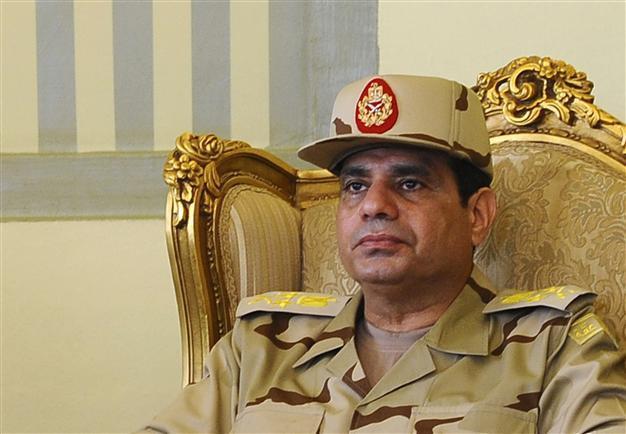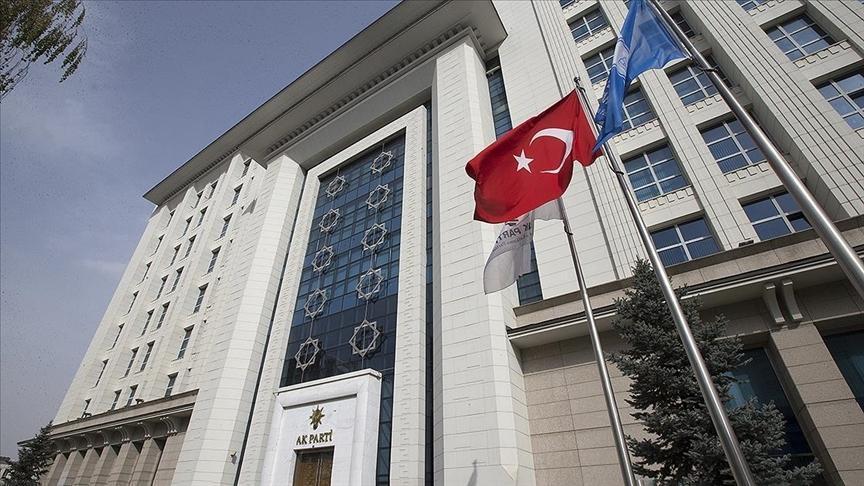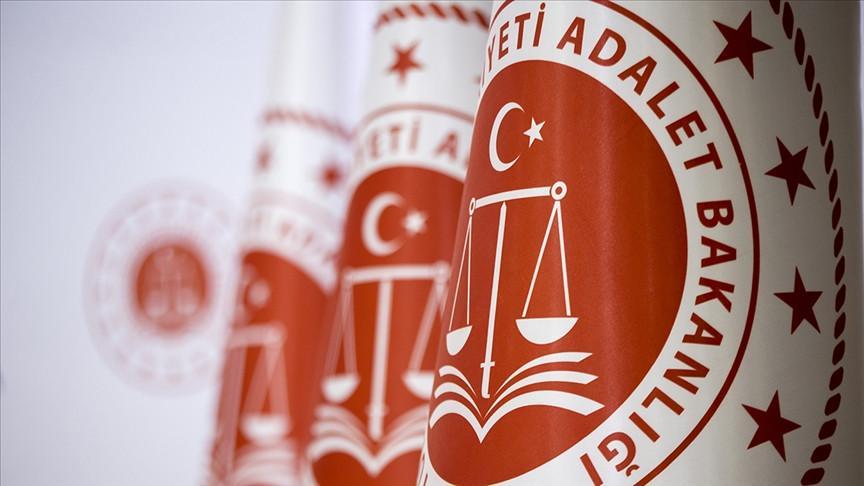Sisi presidential bid 'misinterpreted' by Kuwaiti paper: army
CAIRO - Agence France-Presse

Field Marshal Sisi, bolstered by a surge in popularity after he overthrew Islamist president Mohamed Morsi in July, is widely expected to contest and win an election due by mid-April. REUTERS Photo
Egypt's army said Thursday a Kuwaiti newspaper "misinterpreted" comments by its chief, Abdel Fattah al-Sisi, that he will run for the presidency, saying he will make an announcement directly to the Egyptian people.Field Marshal Sisi, bolstered by a surge in popularity after he overthrew Islamist president Mohamed Morsi in July, is widely expected to contest and win an election due by mid-April He has already received backing from the top military council, and his aides privately say he has made up his mind to stand for office.
The country came close to receiving confirmation when Kuwait's Al-Seyassah newspaper ran an interview with Sisi early Thursday in which he said he would put himself forward.
"Yes, the matter has been decided and I have no choice but to respond to the call of the Egyptian people," the paper quoted him as saying.
"The call (of the people) has been heard everywhere and I will not reject it. I will seek a renewal of confidence of the people through free voting." The military later said the newspaper had "misinterpreted" his remarks, without elaborating, adding that Sisi would formally make such an announcement directly to the people.
"What was published... is nothing but journalistic interpretations that are not direct declarations from Field Marshal Sisi," army spokesman Colonel Ahmed Ali said in a statement.
Sisi would need to resign as army chief, defence minister and deputy prime minister before nominating himself.
Government officials say a cabinet reshuffle will take place soon, possibly next week.
The choice of a Kuwaiti newspaper for a much-coveted interview of Sisi enraged some in the Egyptian media. Al-Seyassah had previously interviewed Sisi, who has helped forge close ties with Kuwait and other Gulf countries that provided billions of dollars in aid to Egypt after Morsi's overthrow. "If you decided to announce (your candidacy), Field Marshal, why didn't you announce it to us," asked television host Khairy Ramadan on private Egyptian channel CBC.
"You have the Egyptian media; you have the Egyptian state television... Why a Gulf newspaper?" Since Morsi's ouster, Sisi has emerged as a nationalist icon often compared to Gamal Abdel Nasser, the charismatic colonel who ruled Egypt between 1954 and 1970.
His portrait is ubiquitous in Cairo and his supporters view him as a tough leader who can restore stability after the chronic unrest that has plagued Egypt since the 2011 popular uprising that toppled strongman Hosni Mubarak, another former military officer.
Mubarak had appointed Sisi as his military intelligence chief, making him the youngest officer to hold the post.
Morsi, who succeeded Mubarak, promoted him to defence minister after purging commanders whose loyalty he doubted.
A victory for him would keep alive a tradition of presidents drawn from the military, and Sisi would face political turmoil and daunting security challenges.
Since Morsi's overthrow, a police crackdown on the Islamist's supporters has killed more than 1,400 people in street clashes, according to rights group Amnesty international, and thrown thousands in jail.
At the same time, Islamist militant attacks have killed scores of soldiers and policemen in north Sinai and mainland Egypt.
The army has poured troops into the mountainous and underdeveloped peninsula, which borders the Palestinian Gaza Strip and Israel, to combat the growing militancy.
An Al-Qaeda inspired group, Ansar Beit al-Maqdis or Partisans of Jerusalem, has claimed most of the deadliest attacks, saying they were in revenge for the deadly crackdown on Morsi supporters.
















